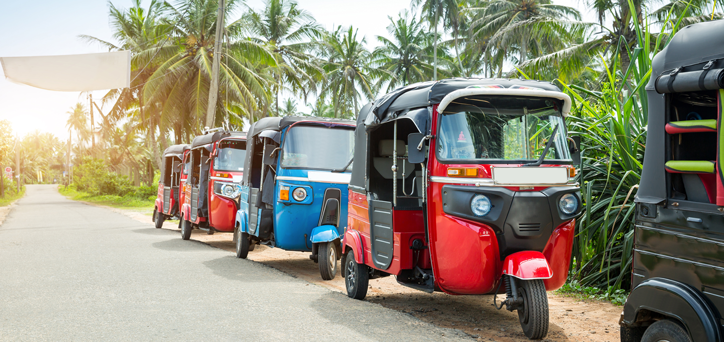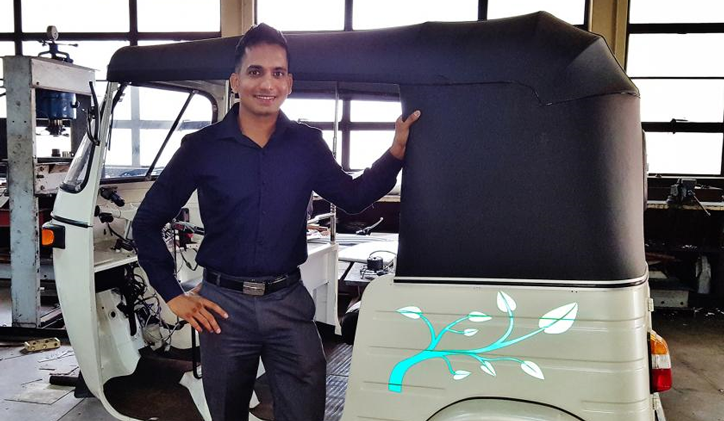Electric Conversion Kit for Tuk-Tuks Invented in Sri Lanka
Posted
on Friday, 22 March 2019
by CarTakeBack
Tuk-tuks, motorised rickshaws with 3 wheels, are common-place in Sri Lanka, giving affordable transport to the population. With 21 million people in the country, there are a lot of them about. These two-stroke vehicles are not very fuel efficient and release a high amount of greenhouse gasses when they run. So, in 2008, the Sri Lankan government took the big step of banning their import into the country. However, 11 years later, approximately 300,000 are still on the roads in Sri Lanka.

Sasiranga De Silva, a 33 year old engineer from the Sri Lankan city of Colombo with a passion for sustainability, set out to tackle the issue, finding tuk-tuks in his home city noisy and polluting. He has developed a conversion kit that allows tuk-tuks to run on electric power, based around a lithium-ion battery. For this invention, he has recently won a grant of US$20,000, given to young people with cutting-edge ideas that encourage environmentally friendly lifestyles.
Sasiranga told UN officials that "Electrifying our transport options is the kind of solution that will make an enormous impact on air quality in Sri Lanka and other countries across the region."
Sasiranga found that the argument for more environmentally friendly transport is not yet at the forefront of tuk-tuk owners' minds, so he consulted with them and made sure the conversion kits are affordable, focusing his design on value as well as efficiency. He has estimated that the conversion kit, which he will price at (US)$2,000, will save drivers around (US)$1,000 a year.
Sasiranga explained the situation in his home country:
“Most drivers are not very educated so the majority would not know about issues with emissions. For them it’s about saving money… But when the project goes commercial we will run separate campaigns to educate them on climate change as well.”

Photo courtesy of Sasiranga De Silva
The grant from the UN has given Sasiranga the opportunity to do more research into bringing down the costs of his conversion kits whilst still preserving engine power. Currently, the kit uses batteries that can manage to power a vehicle at 100km per hour using 7-8 kW, but he wants to reduce that usage to below 6 kWh.
We look forward to hearing about future developments!